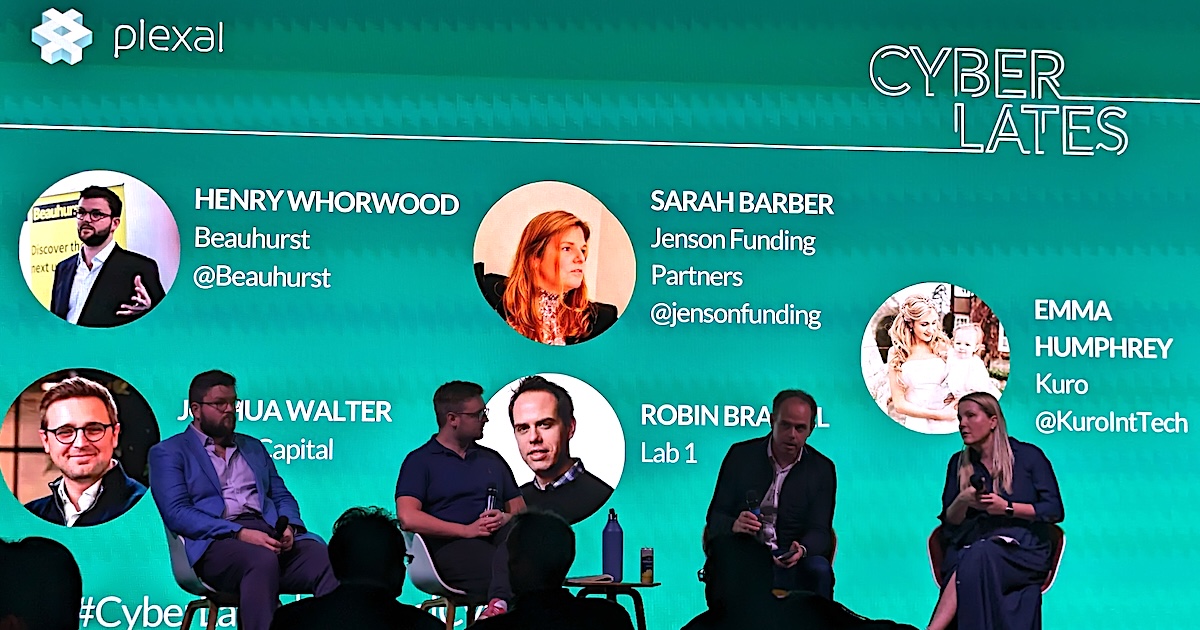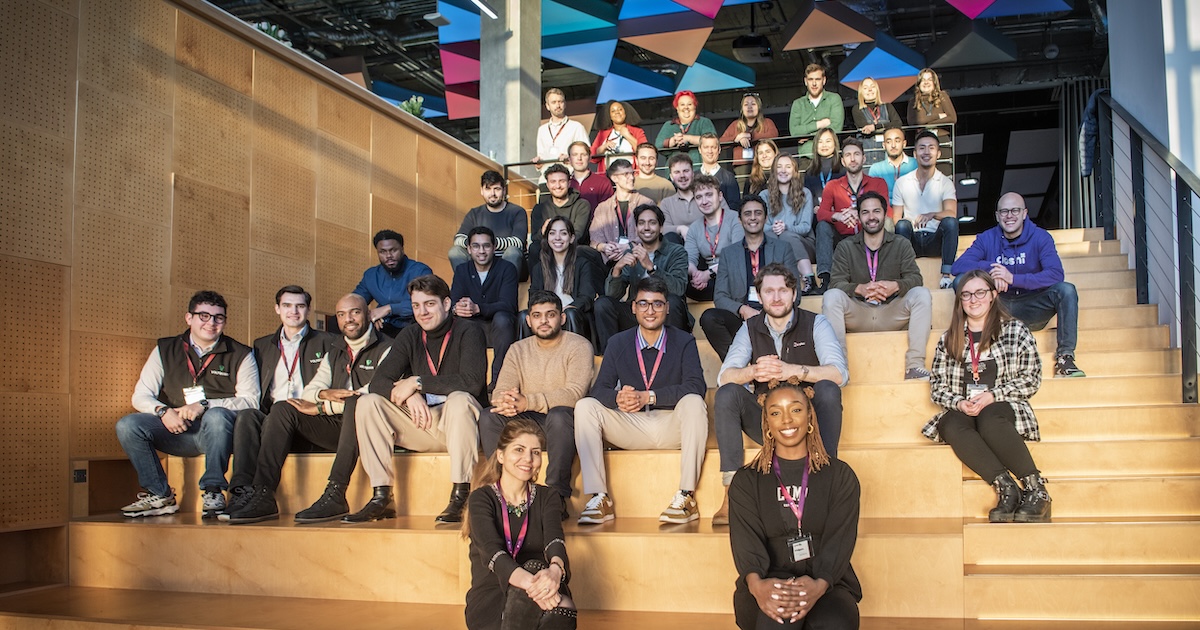As we approach our final Cyber Lates of the year on Tuesday 12th December – which you should absolutely book tickets to – we’ve looked back at our most recent event from the series, during which we asked the key question: what’s it really like to raise investment today?
We rounded up a selection of founders, investors and analysts for our attendees to get a rich understanding of the thoughts and feelings of those across the industry as part of a session chaired by Plexal Innovation Ecosystem Lead, Diane Gilbert.
The panel included:
- Emma Humphrey, CEO at Kuro, a company lowering the barriers to cloud for all, which is seeking investment
- Henry Whorwood, Head of Research & Consultancy at Beauhurst, which tracks and analyses startup and investment activity
- Joshua Walter, Partner at Osney Capital, which invests in early-stage cyber startups
- Robin Brattel, CEO and co-founder of Lab 1, which raised £1m to address data breaches and supply chain risk in 2022
- Sarah Barber, CEO at Jenson Funding Partners, which has launched numerous SEIS and EIS Funds, invested in 140 companies and had ten exits
Diane first asked if there’s enough dry powder to go around currently. “Deals definitely are still happening,” Sarah shared, “we’re seeing a lot of quality deal flow coming through which is great.” However, she caveated this with: “There’s never going to be enough dry powder to go around, it’s not going to happen.”
There is an upside if you’re an early-stage enterprise though. “In terms of the types of funds that we have, very early, pre-seed and seed stage, we’re seeing a lot of changes to the SEIS legislation, which means companies at that level can get more funding,” Sarah continued. “And anecdotally from others who deal with SEIS, they’re also seeing an increase in funds coming into SEIS level.”
There’s approximately 2,000 cyber companies across the nation, according to the UK cyber security sectoral analysis 2023, with sector revenue crossing the £10.5bn mark. Yet even the cyber sector is “certainly not immune” from competing against market conditions, according to Joshua. Although, there’s been some level of insulation because generalist VCs are equally hungry to be involved in the security space and seemingly “the later-stage rounds have been impacted far more.“
Currently in search of investment, Emma’s experience as a founder has been different. “We’re very unique in that we’re raising a relatively large sum versus where we are in terms of development,” she explained. “We’re looking for £4m and that was on the advice of the investors that we spoke to upfront – a lot of the funds that we’ve approached are rooted in North America and that really changes the playbook.”
Emma highlighted that the fundraising process is a steep learning curve, reinforcing that startup CEOs need to be prepared to absorb as much as possible in every call or meeting they have. “My experience has been that there’s help out there and Plexal is a great example,” she said. “You need to learn quickly [from] private conversations with people who understand this in great detail.”
Robin is one such founder who understands the detail that Emma referred to, having raised a £1m funding round for Lab 1. “We raised from lots of high net worths which is a great way to raise money when you’re an early-stage business,” Robin revealed. In addition to the backing of angels, Lab 1 bolstered the investment with additional resources. “We also got some money through a couple of funds,” he added.
The conversation moved towards red flags and green flags that investors will look for when assessing a startup, to which Josh explained: “We look for a real customer problem that’s addressing something people care about [to consider] is this a true innovation? That’s really important. We think a lot about the service point and uniqueness… how painful that problem is for a single customer, how much they’re willing to pay to solve it.”
Sarah agreed with Josh’s points and added: “We tend not to invest in solo founders because we believe that you need a good team there that can talk and bounce off each other and drive forward.”
Catch the full conversation below.
Stay tuned to our social channels @PlexalCyber on Twitter, Plexal Cyber on LinkedIn and sign up to our Cyber Community newsletter for more updates on our cyber security programmes.


